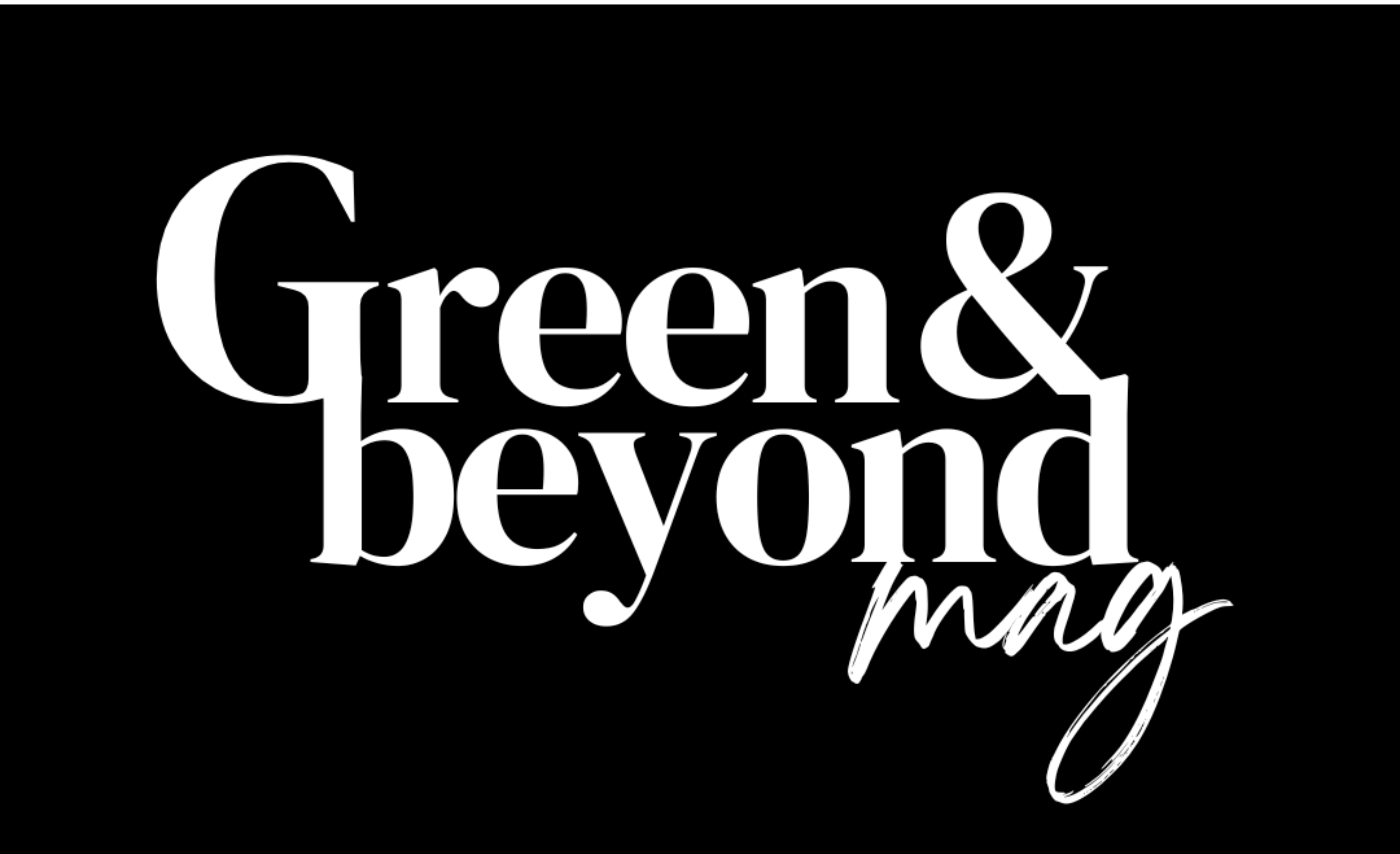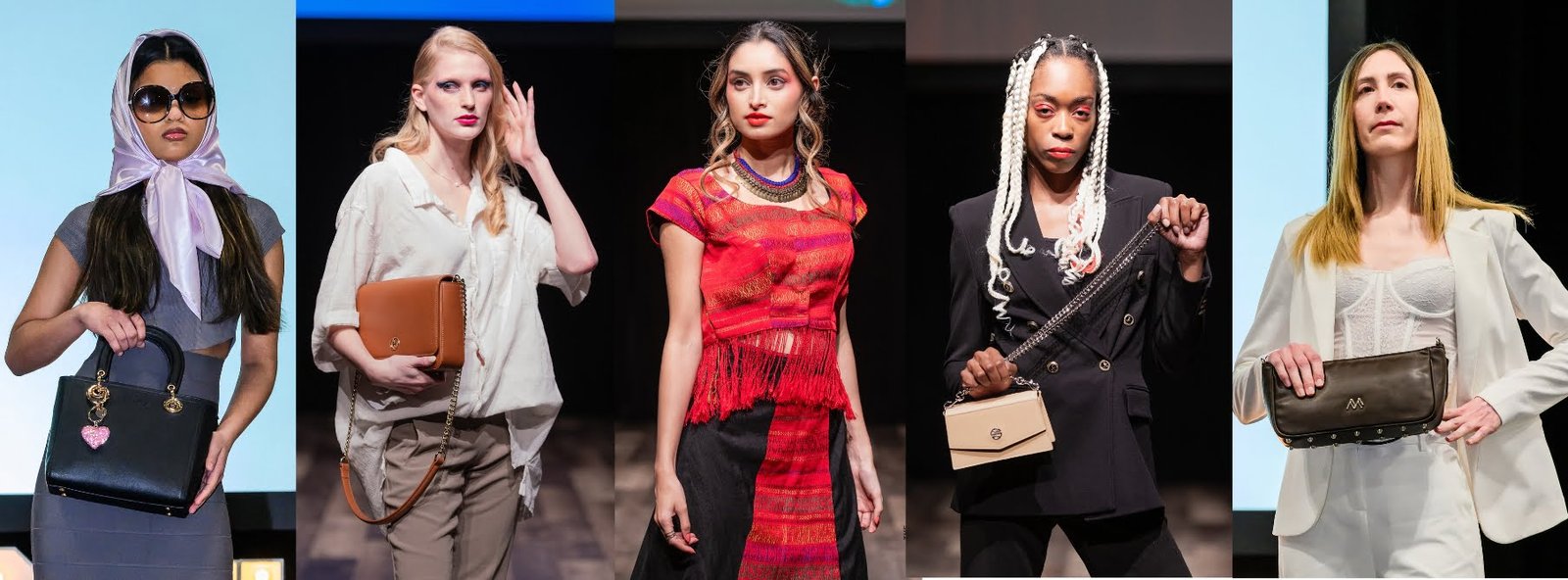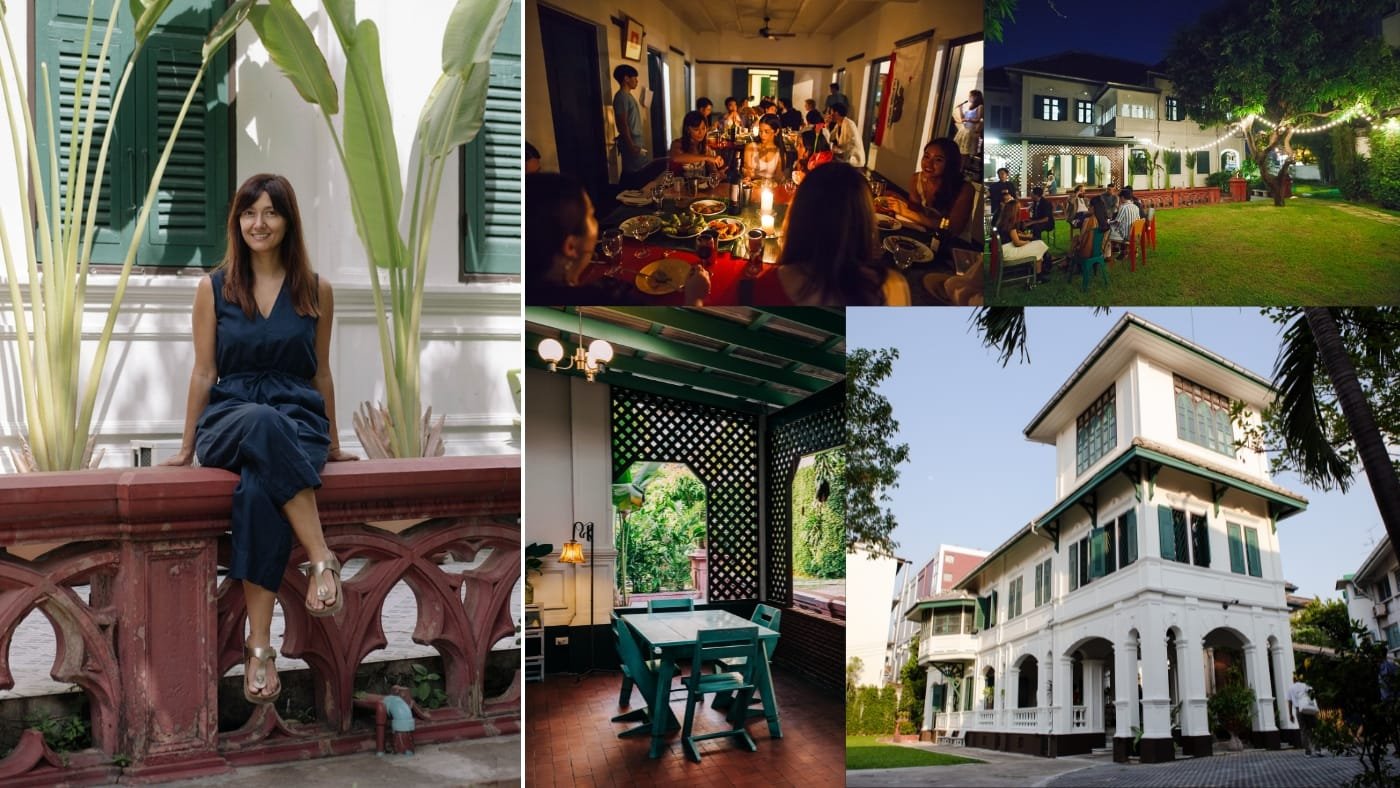As the fashion industry evolves, a new wave of fashion brands are demonstrating that it’s possible to create garments that honor cultural heritage, consider the environment, and protect animal rights. Utilizing next-generation materials and innovative design, these brands are at the forefront of a burgeoning revolution in sustainable fashion. As always, the most sustainable option is to not buy anything new at all. And, we are still in the early stages of exploring and adopting advanced materials. With that in mind we’re taking a look at brands that are taking bold strides forward, employing some of the best options available to date. Their commitment is reshaping the industry, proving that fashion can be both stylish and conscientiously crafted.
Lost Woods: The Epitome of Eco-Luxury

Lost Woods, an Australian luxury handbag label created by Holly Edwards, crafts its products in Portugal using high-quality, plastic-free vegan leather. The brand’s name is a tribute to the forests and wildlife lost to traditional leather production, which is a major cause of deforestation globally. Lost Woods combines sustainability with high fashion through its use of MIRUM®, a material celebrated for its luxurious look and durability. The brand sets a high standard for industry transparency, extensively detailing its manufacturing process online and educating consumers about sustainable materials through its blog.
No. 49: A Vision of Sustainable Style

At the age of 49, Rosanne Wood founded No. 49, a brand that embodies new beginnings and growth, as reflected in its numerological significance. This brand champions materials like apple leather, which uses significantly less fossil fuels compared to animal leather or regular polyurethane synthetic leather. Other materials include recycled cotton, recycled polyurethane, bamboo leather, and Raffia. Their benefits can all be found on the brand’s website. No. 49 is not just about aesthetics; it actively contributes to environmental protection by removing two pounds of non-recyclable plastic waste for every handbag sold and partnering with firms that work to reduce airborne carbon.
Jummobi Apparel: Culture and Compassion
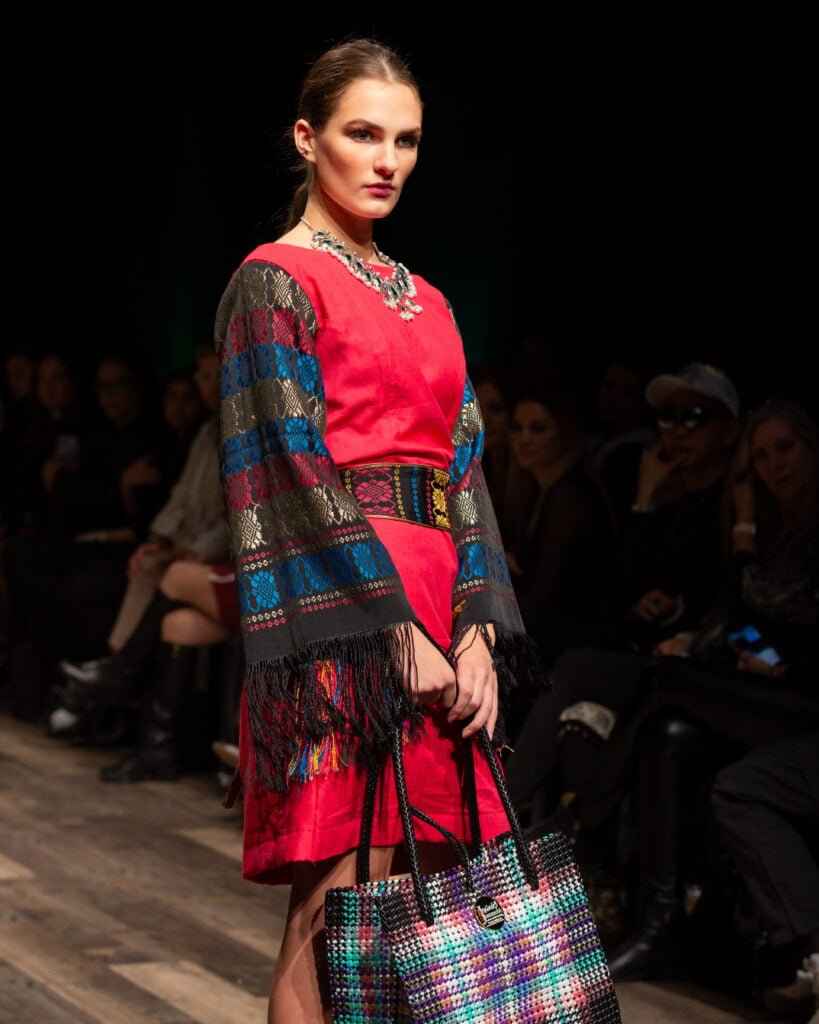
Juliana Chakma L., founder of Jummobi Apparel, is dedicated to preserving her Indigenous Southeast Asian heritage through fashion. The brand offers a line of slow fashion clothing and cruelty-free beauty products that incorporate traditional patterns and vegan materials. Juliana’s upbringing instilled a deep respect for life, which she channels into her brand, celebrating the spirit of Indigenous women, “the women of the hills.”
jeane+jax : Redefining Luxury

Founded by Silvia Gallo in 2014, jeane+jax is on a mission to redefine luxury fashion by prioritizing sustainable practices and materials. Known for their innovative use of MIRUM®, a revolutionary plant-based leather alternative free from plastics, the brand is committed to creating high-quality, luxurious handbags that support eco-consciousness. By embracing transparency and a “Total Ethics Fashion” model, jeane+jax is leading the change towards a more earth-friendly future in the fashion industry.
Mili & Maxie: Tradition Meets Tomorrow

Mili & Maxie, birthed from the vision of Toronto-based couple Minal and Lakshya, crafts luxury vegan handbags from DESSERTO®, a cactus-based material. This material requires only natural rainfall to make and the cacti are a carbon sink. With production rooted in India, the brand honors its cultural heritage through meticulous craftsmanship by local artisans, merging traditional techniques with modern ethical practices.
Segan: Redefining the Norm

Vancouver’s Segan, led by Mahdi Terani, invites fashion enthusiasts to partake in a conceptual experience that transcends typical design. The brand fosters a community akin to an artistic speakeasy, offering an array of handbags and jewelry made exclusively from non-plastic vegan materials, advocating for ecological responsibility over trend conformity.
This era of sustainable fashion innovation is truly exciting. It highlights the industry’s long-awaited shift towards materials and methods that respect culture, the environment, and animals. Exceptional fashion brands like those we’ve explored are leading the charge, prioritizing ethical practices as much as style.
But the movement doesn’t stop there. As these brands continue to innovate and inspire, we can expect a future where fashion empowers cultural expression, protects our planet, and respects all living creatures. This shift requires not just industry change, but a shift in consumer consciousness. By supporting ethical brands, we cast a vote with our wallets, weaving a future where fashion ignites not just our personal style, but a collective passion for a more sustainable world.
Cover image credit: Jim Orgill Photography
Sustainable Lifestyle & Climate Optimism through Storytelling
